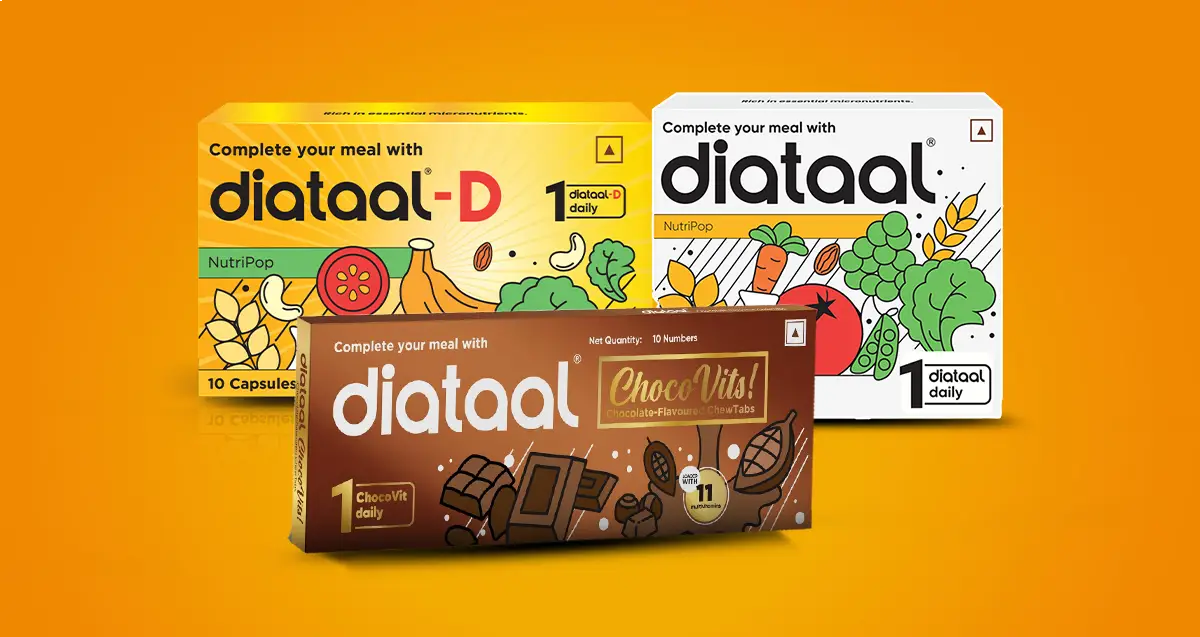
When is the Best Time to Take Multivitamins?
Index
| 1: Introduction |
| 2: Understanding Multivitamins |
| 3: Factors to Consider When Choosing Multivitamins |
| 4: The Impact of Timing on Multivitamin Absorption |
| 5: Best Time to Take Multivitamin |
| 6: Can I Take Multivitamins at Night? |
| 7: Is It Good to Take a Multivitamin Every day? |
| 5: Best Time to Take Multivitamins |
| 7: Is It Good to Take a Multivitamin Every Day? |
| 10: Potential Side Effects and Overdose Risks |
| 11: Conclusion |
| 12: FAQs |
Multivitamins act as an additional nutrition to our existing diets and would conveniently fill the nutritional gaps. The timing of taking multivitamins is crucial for reasons like good absorption, maximizing nutrient utilization, and minimizing potential side effects. Here, we will dive into understanding why timing matters and determine the best time to take multivitamins.

Understanding Multivitamins
Multivitamins help to support body functions by providing the essential nutrients needed for your body. They are formulated to bridge any nutritional gaps in one’s diet through the convenience of a pill. The composition of multivitamins usually contain essential water soluble vitamins like:
Vitamin A, B (B1, B2, B3, B6, B9 and B12), C, D, E and K. They also contain minerals like Calcium and Iron.
Water soluble and fat soluble vitamins are important for energy production, cell production, vision, better skin, and much more. Similarly minerals help with bone health, muscle functioning, and sleep cycles.
Hence taking multivitamins on a day-to-day basis may be beneficial for our overall health. Daily multivitamins would conveniently help us with fulfilling our nutritional requirements and improve our body holistically.
Things to Consider When Choosing Multivitamins
Since each one of us are different and require catered needs, it is important to make sure to pick a multivitamin that suits you as an individual. Understanding our needs include knowing which vitamins/minerals we may be deficient in, what we need to improve in our health and which multivitamins suit us the best. Here are a few things to keep in mind:-
- Avoid Unnecessary Supplementation
- Balanced Supplementation
- Long-Term Health Goals
- Cost-Effectiveness
Similarly, we must take into consideration our age and gender while choosing a supplement. For example:
- For Children and Adolescents, A multivitamin containing iron and folic acid is important.
- For Adults, heart health, bone health and other age-related changes are to be kept in mind. These require a need of vitamin B12, vitamin D and calcium.
- For Pregnant and Breastfeeding Women, folic acid, calcium and iodine are the most important nutrients.
Each individual may vary in how to take multivitamins, how long they should take multivitamins and when to take multivitamins. Knowing the Recommended Daily Intake (RDI) of supplements prevents overdose, unnecessary interactions with other medications, bad quality control etc.

The Impact of Timing on Multivitamin Absorption
The question of when is the best time to take multivitamins and when to take multivitamin tabletsoften arises. This is when the idea of bioavailability applies. Bioavailability refers to the extent and rate at which a nutrient from a dietary source or supplement is absorbed and becomes available for use by the body. It means factors like: –
Nutrient Form:
Select vitamins and minerals might be much more bioavailable in their active or coenzyme forms.
Food Matrix:
The presence of other compounds in food can affect the absorption of nutrients. Some compounds might enhance or inhibit absorption.
Inter-Nutrient Interactions:
Some nutrients affect absorption of others. For example, taking high amounts of calcium can hinder the retention of magnesium and iron.
Keeping this in mind we must also understand the influence food has over mineral/vitamin absorption.
- Calcium-rich foods, such as dairy products, can inhibit the absorption of non-heme iron from plant sources. Consuming them together may decrease iron absorption.
- Vitamin K is fat-soluble, and consuming it with healthy fats (like nuts) can enhance its absorption.
Best Time to Take Multivitamin
Studies suggest that having multivitamins along with a meal can improve the bioavailability of certain nutrients. But as most things, this depends on individuals preferences and reactions. Having food with multivitamins also reduces the chances of having a stomach upset due to the body’s sensitivity to a sudden/intense flow of vitamins/minerals. Similarly, consuming multivitamins during the mornings or evenings has its own benefits. Morning intake acts as a boost of energy and may power one throughout the day while evening intake may help individuals relax and de-stress, supporting good sleep. Again, what works for one may not work for another due to personal preferences, lifestyle, dietary patterns, and health conditions.

Can I Take Multivitamins at Night?
Multivitamins before bed provides certain benefits such as improved sleep, consistency, and convenience. These include:-
- Magnesium: Magnesium is known for its relaxing effects on muscles and the nervous system.
- Vitamin D: supports the production of neurotransmitters like serotonin which are important for good sleep.
- Vitamin B6: Adequate B6 intake can contribute to healthy sleep patterns.
Is It Good to Take a Multivitamin Everyday?
Often the question of ‘Is it good to take a multivitamin everyday?’ arises among people who are seeking additional supplementation. This can be answered by considering the pros and cons of daily supplementation.
Pros
- Nutrient Insurance: Multivitamins will provide you the additional supplementation you need and improve overall health.
- A convenient form: Multivitamins provide nutrients at convenience and cater well to modern day lifestyles/schedules.
- Specific Needs: They can be tailored to suit individual needs as each person can find their right supplementation with ease.
Cons
- Unwanted Nutrient Intake: Individuals that lead an all-round healthy diet do not require supplements as it may lead to imbalances.
- Dangerous interactions: Interaction with other medications can be risky and affect overall health.
- Neglecting Balanced Diet:Prioritizing multivitamins over a well-balanced diet will lead to poor health and lifestyle.
How to Take Multivitamin Tablets?
With the advancement in healthcare, multivitamins are now available in forms that make them easier to consume for individuals. This includes softgels, capsules, gummies, powders and effervescent tablets (water dissolvable tablets). Diataal offers Diataal, Diataal D and Chocovits as suitable options.
For What Period of Time Should You Take Multivitamin Supplements?
The answer to the question of how long you should take a multivitamin depends on individual requirements. Short term supplementation for certain deficiencies require us to take supplementation until we are no longer deficit while in case of daily health maintenance, one may say it is good to take a multivitamin every day for a long duration (1 year or more).
Potential Side Effects and Overdose Risks
It is important to keep in RDI guidelines and avoid excessive intake of vitamins and minerals. Excessive intake of certain nutrients can disrupt balance and lead to toxicity.
Improper usage of multivitamins can lead to:
- Digestive Distress
- Vitamin Toxicity
- Mineral Overdose
To minimize these risks, it’s vital to follow the recommended dosages, read product labels and consult healthcare professionals before establishing any multivitamin routine.
Conclusion
Multivitamins act as convenient supplements that are designed to fill potential nutritional gaps in one’s diet. It is crucial to approach multivitamin supplementation with mindfulness and informed decision-making.
To get the best out of multivitamins one must understand supplementary needs, select an appropriate timing and method, a consumption form and adhere to recommended dosages. It is important to remember that they cannot substitute a balanced diet and healthy lifestyle. Consulting a healthcare professional before starting your supplementation journey is vital, as they can provide personalized advice.
FAQs
Can I take multivitamins on an empty stomach?
It is advised to take multivitamins with a meal, as they may be more efficient.
Can I take all my multivitamins at once?
Taking multiple multivitamins at once increases chances of vitamin/mineral toxicity. Hence it is not advised to do so.
Can I take multivitamins before or after exercise?
Taking a multivitamin before or after exercise depends on the nature of the exercise.
Can I take multivitamins if I have dietary restrictions?
Yes, multivitamins are formulated for individuals with dietary restrictions.
Where can I shop for the best multivitamins in India?
Diataal provides high quality supplementation in India.



